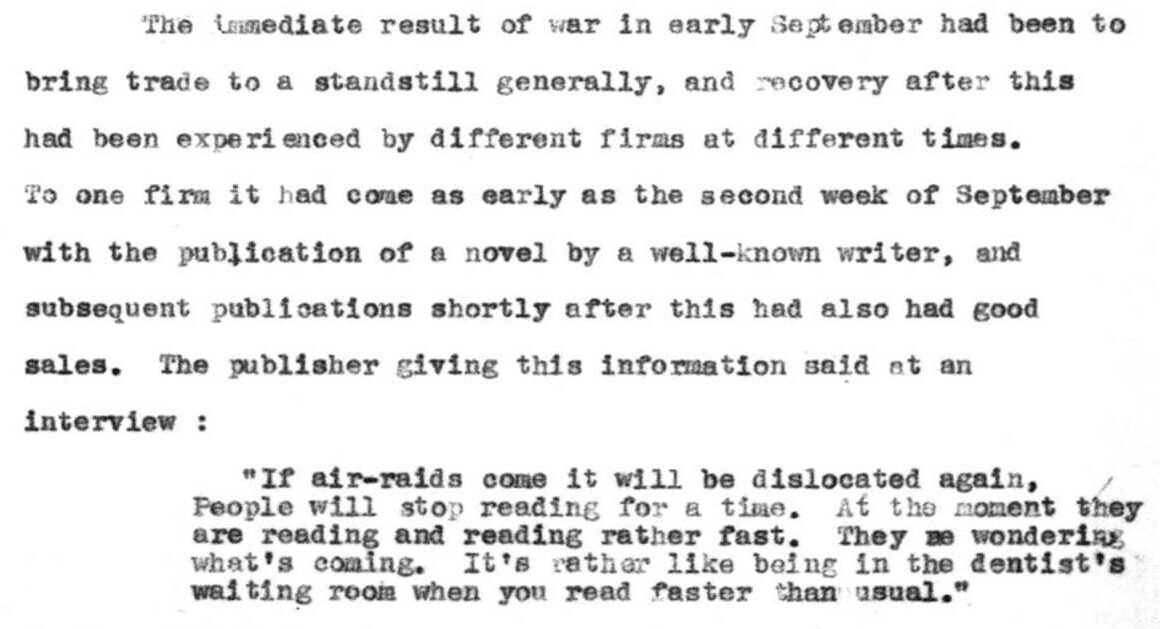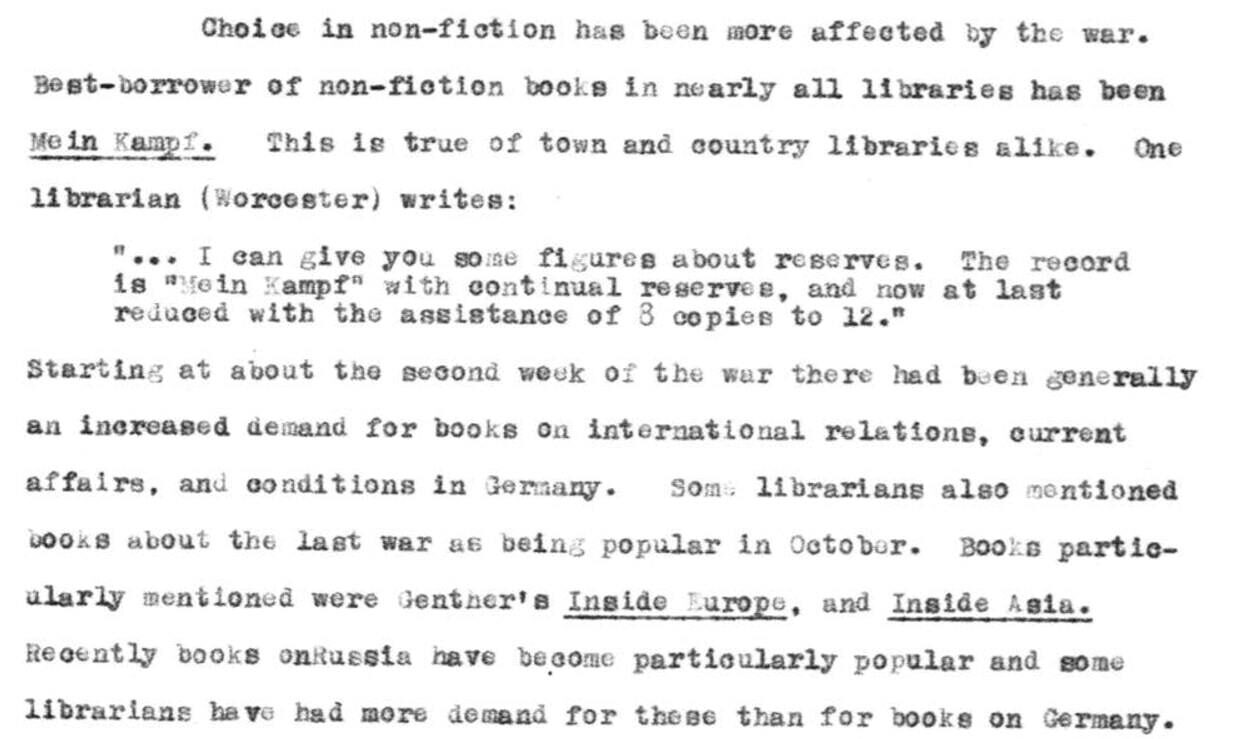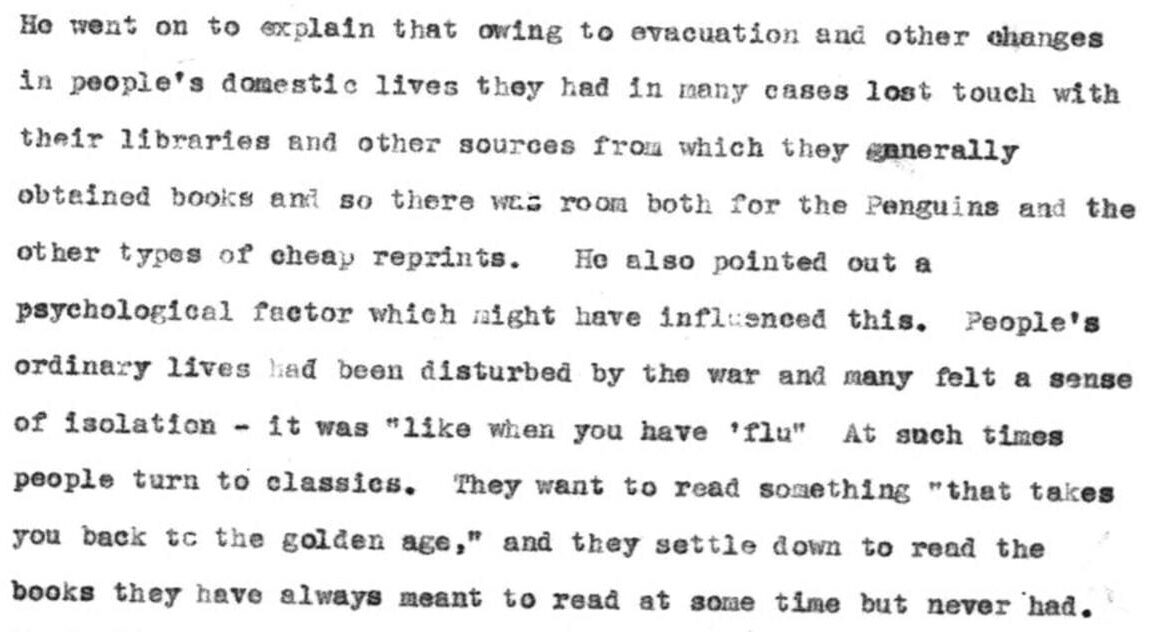Early Reading Trends of the Second World War: An Industry Perspective
Mass Observation Online reveals how eighty years ago our reading and book buying habits shifted. Book Reading in War Time: Report on Material Obtained from Publishers, Book Clubs, Libraries and Booksellers offers insights into the impact the first few months of the Second World War had on the book publishing industry, our libraries, and the books we were scrambling to read.

Book Reading in War Time, March 1940, © Mass Observation Archive. University of Sussex Special Collections. No further reproduction without permission. To see this document in the collection, click the images in the blog.
The report avoids drawing any specific conclusions about the impact of the war on the publishing industry because the responses were so varied. Despite this, there were a number of shared observations and pressures felt by many of the respondents, such as the impact paper rationing will have on future printing and how nationwide blackouts have encouraged people to read more.

Book Reading in War Time, March 1940, © Mass Observation Archive. University of Sussex Special Collections. No further reproduction without permission. To see this document in the collection, click the images in the blog.
The report suggests there was an increased demand in non-fiction book buying and lending during this period. Librarians noted the popularity of Hitler’s Mein Kampf and other books about Germany, as demonstrated by the increase in reservation requests. It is perhaps unsurprising that the British public would turn to these non-fiction books to sate their desire to understand more about Germany’s current affairs and motivations.

Book Reading in War Time, March 1940, © Mass Observation Archive. University of Sussex Special Collections. No further reproduction without permission. To see this document in the collection, click the images in the blog.
The report suggests there was an increased demand in non-fiction book buying and lending during this period. Librarians noted the popularity of Hitler’s Mein Kampf and other books about Germany, as demonstrated by the increase in reservation requests. It is perhaps unsurprising that the British public would turn to these non-fiction books to sate their desire to understand more about Germany’s current affairs and motivations.

Book Reading in War Time, March 1940, © Mass Observation Archive. University of Sussex Special Collections. No further reproduction without permission. To see this document in the collection, click the images in the blog.
To find out more about Mass Observation Online (1937-1967) or the recently published Mass Observation Project (1981-2009), including free trial access and price enquires, please email us at info@amdigital.co.uk
Recent posts

Discover how the Mass Observation Project evolved through the 2010s. Explore societal trends, from climate change to digital shifts, revealed through module IV. Read how researchers and the public document everyday life in a changing world.

This blog spotlights Foreign Office, Consulate and Legation Files, China: Section II's material which documents China's relations with Britain, and key events such as the beginning of the Xinhai Revolution that ended centuries of imperial rule. It features correspondence between London and British diplomats stationed in Weihaiwei, the first foreign concession in China.
